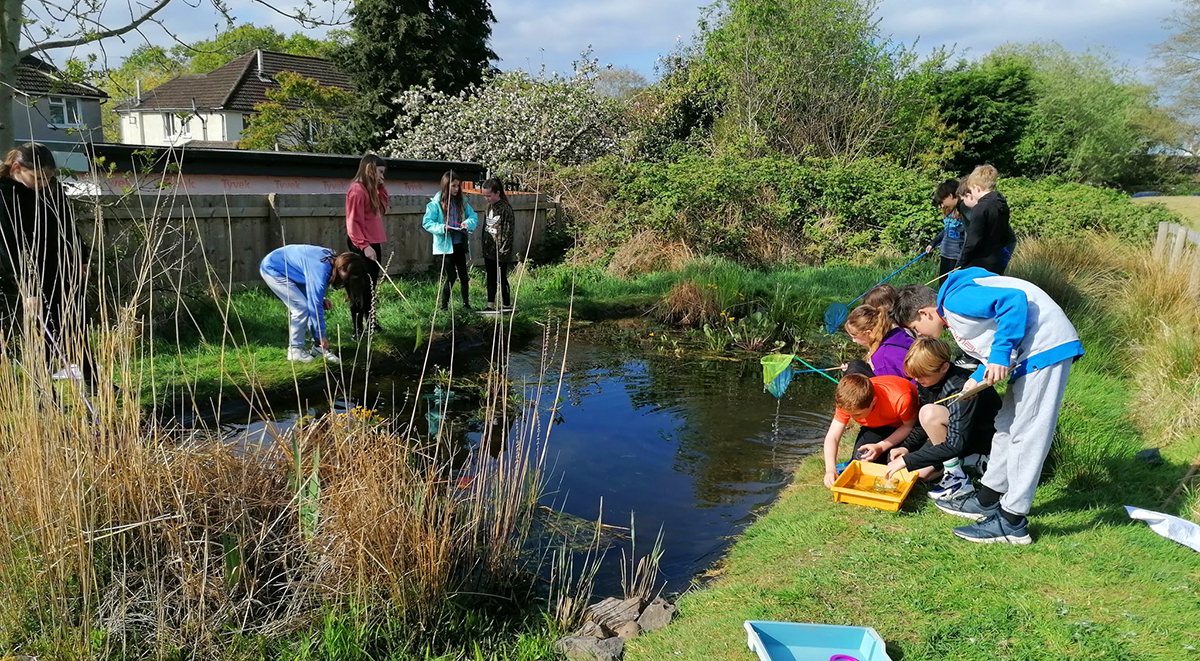Extending horizons at Llanishen Fach Primary School
The retired teachers amongst the readership may well remember the introduction of ‘Baker days’, now more correctly termed in-service training or ‘INSET’ days. While such days are a well-established part of school life and a valuable tool for school management, they are sometimes misunderstood by some, being seen as an unwelcome interruption to the school term.
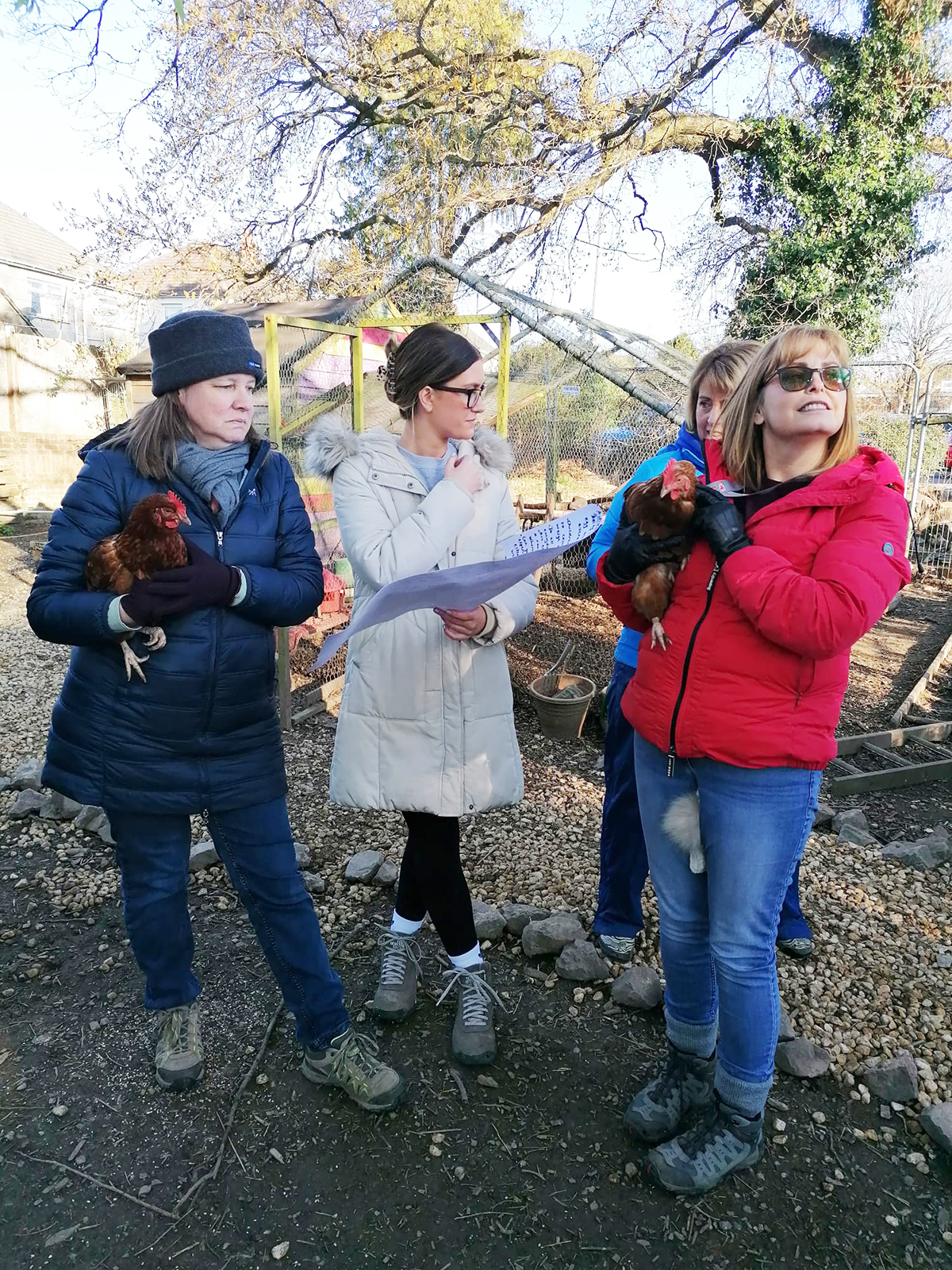
Here at Llanishen Fach Primary School, INSET days are far from a disruption, providing valuable time for our teachers and teaching assistants to continue to improve and develop our practice and stay abreast of recent thinking and developments in primary education. Such training opportunities have never been more valued as now, as we emerge from a difficult time for schools and look to the future, certain in the knowledge that our professionalism is more than ever vital to the lives and prospects of our pupils.
For many years now, outdoor learning has been a mainstay of our curriculum, with pupils spending one day a fortnight totally emersed in the outdoor environment, come rain or shine. So, when March saw schools across Wales celebrate the potential and benefits of taking learning outdoors, we were eager to get involved. We decided to mark ‘Wales Outdoor Learning Week’ by setting aside a sizable part of our spring’s two day INSET programme to exploring teaching and learning opportunities for our school community.
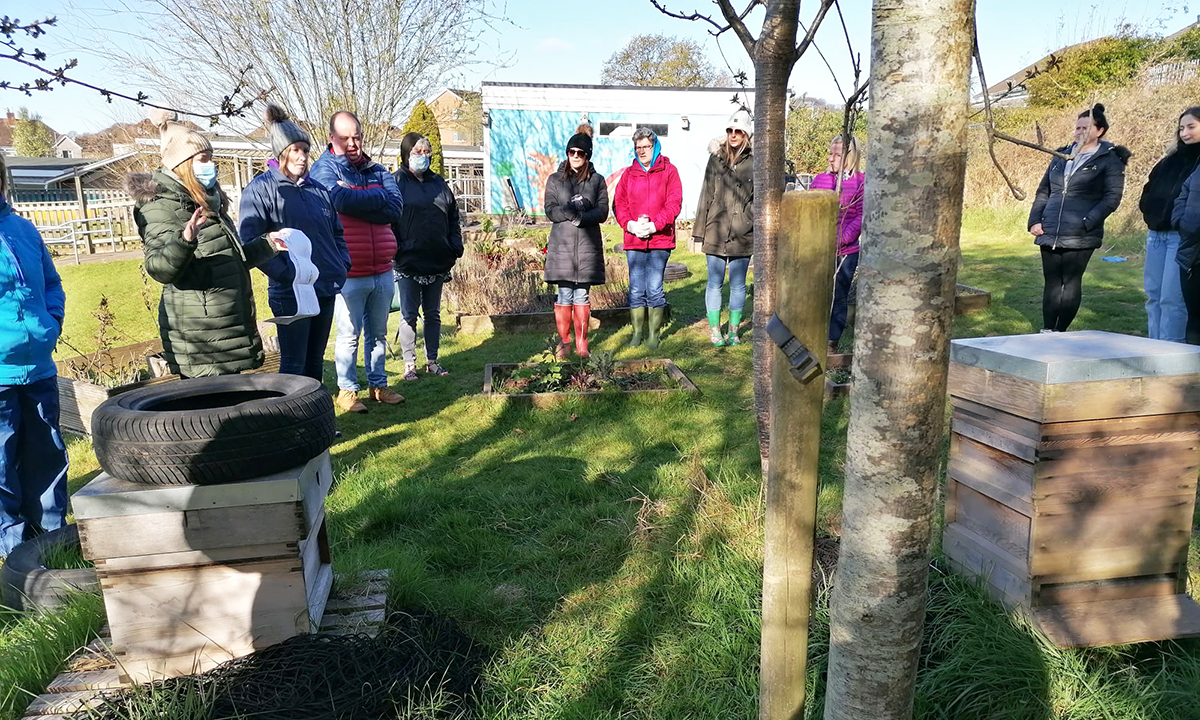
Taking the lead from the many and varied outdoor resources we have access to, staff considered how to extend their teaching using these resources as a focus:
- “Lamby Way” – our investigation and exploration area
- chicken coop
- ancient varieties apple orchard
- raised planting beds
- thriving apiary and other pollinators found on site
- willow circle and hazel grove previously planted by pupils
- extensive British native trees, both mature and recently planted
- pond (we received a grant to establish)
As our staff bounced ideas off each other, new and exciting teaching and learning opportunities began to take shape and develop into proposals to be developed in the summer term.
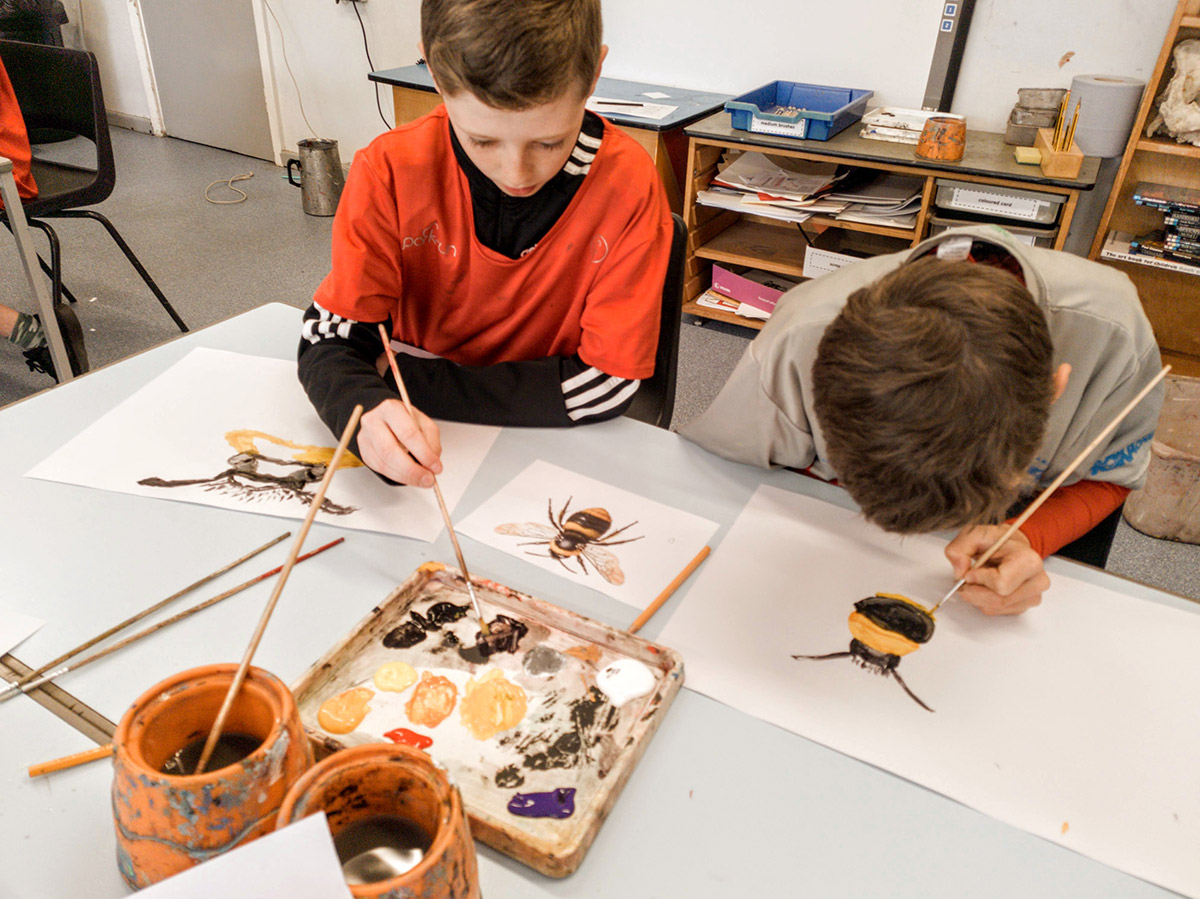
With the arrival of the summer term our returning pupils, fresh from their Easter break, were quickly engaged in a range of exciting activities. Our Year 5 children got busy thinking about both the honeybees we have on site and the bumble bees that visit our grounds. They researched the hives and created graphs to depict colony size while in the art room they made paintings of some of the different bumble bees they observed around the school. Pupils also used Google maps to gain a better understanding of the school grounds and their place in the wider community.
The Year 6 pupils conducted an extensive and meticulous survey of pondlife found in our 5mx3m pond which, as you can imagine, took some doing!
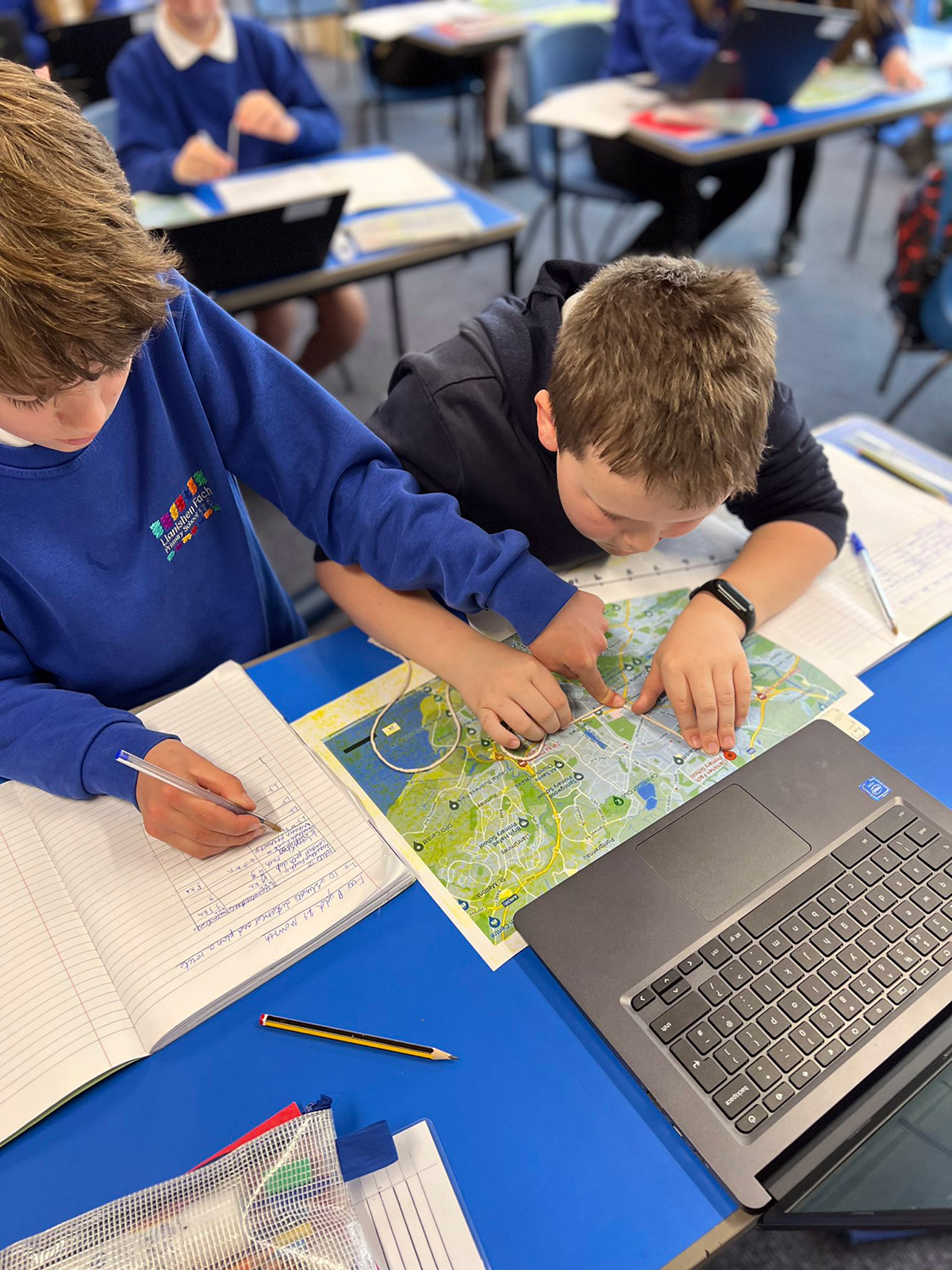
At the younger end of the school, the Reception age children have been learning about plant growth and cultivating their own garden while the Year 1 pupils learnt about insects, creating homes for them, and pollinators which they surveyed at different locations around the school grounds.
In Year 2 the pupils used their interaction with our chickens to inspire their creative writing with the odd exclamation mark to emphasise their delight and excitement. It isn’t just insects that we have in abundance, we also have regular visits from a range of nocturnal mammals. How do we know this? The children in Year 4 have been using a motion-activated infrared night camera. Taking the lead in their learning, once they had discovered the existence of these visitors, they wanted to find other ways of recording their nightly visits and set footprint tracking tunnels along the routes they had discovered and mapped.

As well as being integrated into our mainstream classes, our Specialist Resource Base (SRB) pupils have been using the grounds within their own curriculum. The younger pupils in Dosbarth Enfys 1 spent an enjoyable morning washing ‘Incy Wincy Spider’ down the waterspout. In Dosbarth Enfys 2 the pupils wanted to spend more time looking at the ‘minibeasts’ found around the school, which they did with great thoroughness!
So, following our ‘Wales Outdoor Learning Week’ INSET we now ask the question, when planning our future teaching, ‘What is it about this activity that requires it to be done indoors?’ As a result, we now TAKE THE LEARNING OUTDOORS whenever we can.


